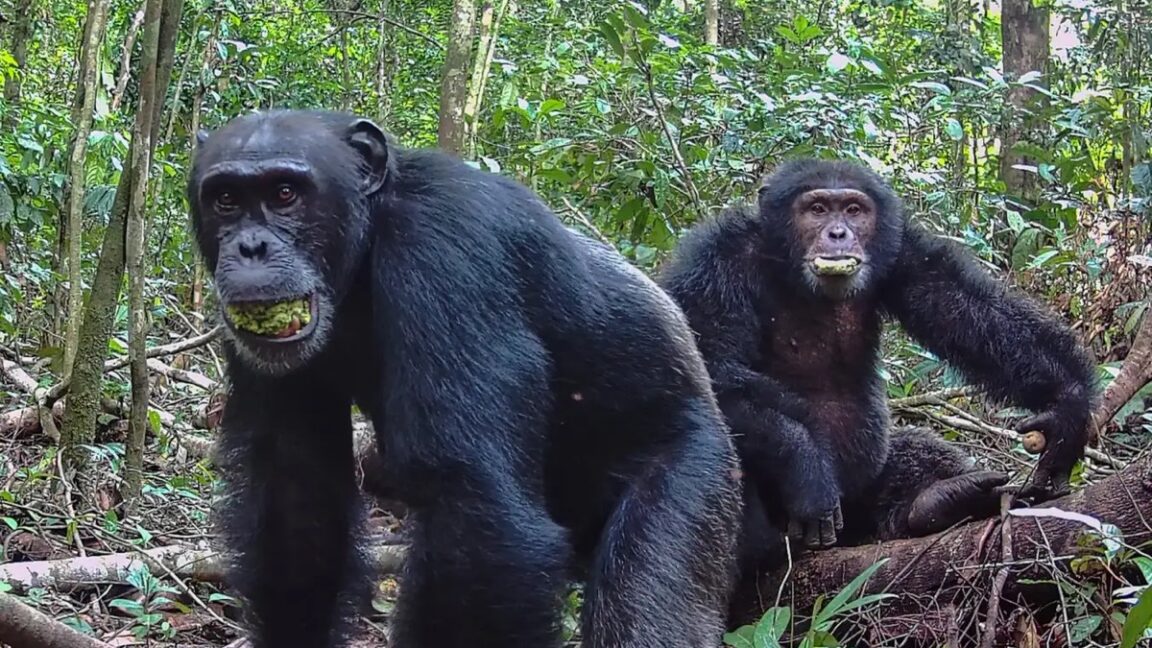
"If the chimps are randomly sampling ripe fruit, then that's going to be their average consumption rate, independent of any preference for ethanol,"
"But if they are preferring riper and/or more sugar-rich fruits, then this is a conservative lower limit for the likely rate of ethanol ingestion."
"Our findings imply that our ancestors were similarly chronically exposed to dietary alcohol,"
"The drunken monkey hypothesis suggests that this exposure caused our species to evolve an association between alcohol consumption and the reward of finding fruit sugars, and explains human attraction to alcohol today."
Ethanol concentrations were measured in fallen fruit pulp collected at Ngogo (Uganda) and Tai (Ivory Coast). Fruits were packed airtight and frozen to prevent further ripening before testing with a breathalyzer, portable gas chromatograph, and chemical assays. Measured ethanol concentrations averaged about 0.31–0.32 percent. Chimpanzees at both sites consume roughly 5–10 percent of body weight in fruit daily, about 40–45 kilograms, producing chronic low-level ethanol intake. Most frequently consumed fruits had the highest ethanol content, so ingestion could be higher if chimps prefer riper or sugar-rich fruits. Chronic dietary ethanol exposure supports the drunken monkey hypothesis as a plausible evolutionary explanation, with the caveat that apes ingest ethanol accidentally while humans drink it deliberately.
Read at Ars Technica
Unable to calculate read time
Collection
[
|
...
]